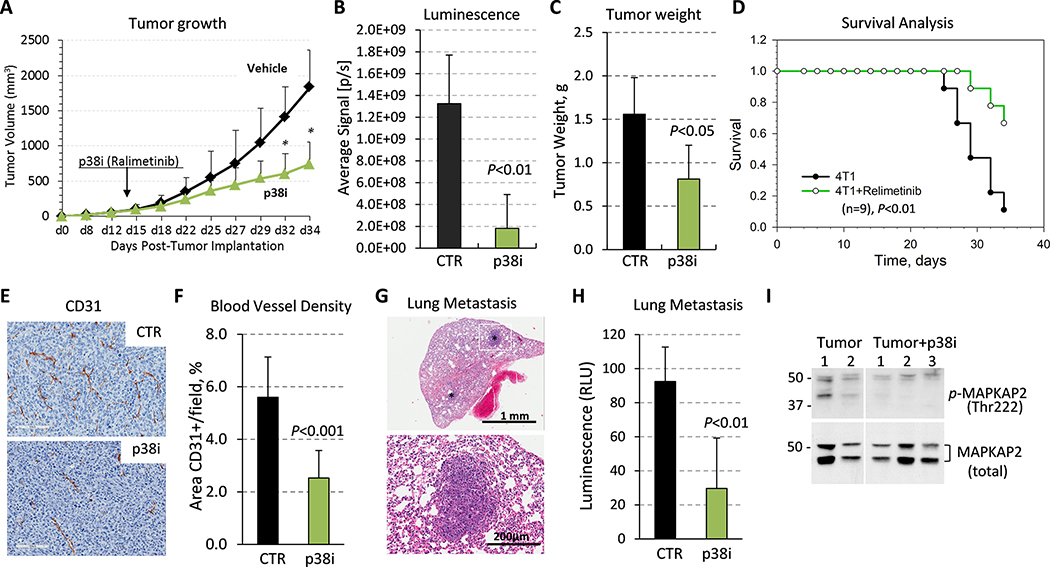Figure 1. Tumor growth and metastasis are reduced by systemic treatment with a p38 inhibitor.
(A) 4T1-Luc mammary carcinoma cells (50,000) were orthotopically implanted into female BALB/c female 6-week old mice (9 mice per group). Starting on day 14 post-tumor implantation, when the tumor size reached ~100mm3, mice were treated by daily oral gavage with vehicle-control (saline) or p38i (Ralimetinib). (B) Quantification of bioluminescence in live animals at day 34. (C) Tumor weight at day 34. (D) Survival was evaluated using Kaplan-Meier estimator based on time-to-arrive at 1cm3 of tumor size measured in 4T1 tumor-bearing mice in non-treated (4T1) and Ralimetinib-treated groups, (n=9). Comparison was made using the Log-rank test (P<0.01). (E) Tumor blood vessels were visualized by anti-CD31 staining, bar=100μm. (F) The microvessel density was evaluated on comparable size tumors using CD31-stained sections in six fields for each case (3 tumors/group) and presented as mean area per field (0.2 mm2). Statistical significance was determined using the two-tailed unpaired t-test (P<0.05). (G) Detection of metastases in H&E-stained lung sections. (H) Luminescence activity in whole-cell extracts from the lungs of control or p38i-treated comparable size groups, 3 mice per group. (I) Immunoblots of whole tumor extracts from mice bearing 4T1 tumors from the vehicle control and p38i-treated groups.

